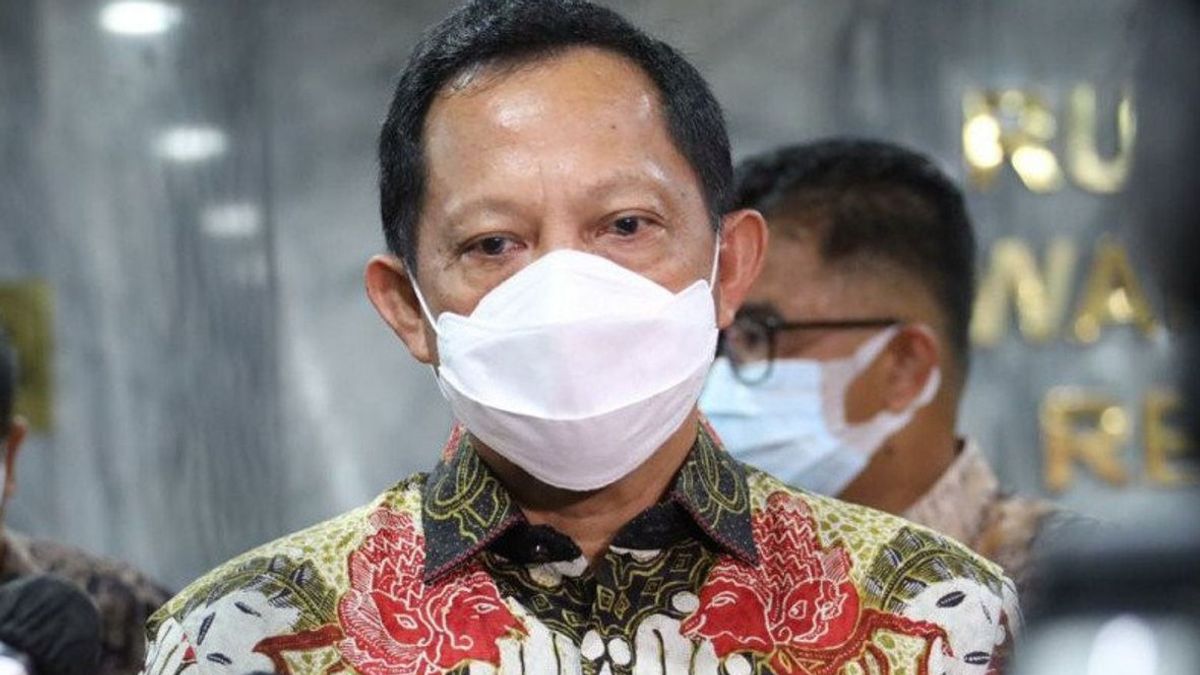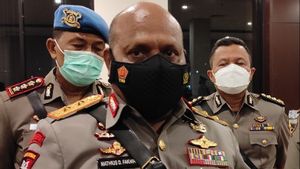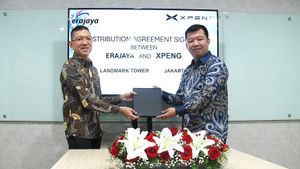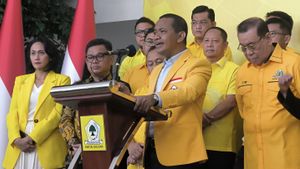JAKARTA - Minister of Home Affairs (Mendagri) Tito Karnavian reminded and forbade officials in local governments to avoid conflicts of interest in issuing policies, let alone a public policy.
The Ministry of Home Affairs has sent a circular letter No. 356/4995/SJ dated September 14, 2021, to governors, regents, and mayors throughout Indonesia. The contents of the letter prohibit the issuance of policies that have the potential to cause conflicts of interest.
The essence of the circular letter (SE) is to encourage orderly, effective, transparent local government administration on top of compliance with laws and regulations.
In the SE, government officials who have the potential to have a conflict of interest are prohibited from making and making decisions and actions that are motivated by personal and business interests, relationships with relatives and family, relationships with representatives of parties involved, relationships with working parties and receiving salaries from third parties. which is involved.
The SE is a reminder and at the same time encourages regional officials and heads, especially those who just took office after the 2020 Pilkada, actually carry out the directives of the Minister of Home Affairs.

The SE from the Minister of Home Affairs Tito Karnavian also clearly emphasized that regional heads and regional government officials should avoid asking for, giving, or receiving donations, gifts, and other forms that contain conflicts of interest as well as criminal acts of corruption and which are contrary to the contents of the oath of office and which related to abuse of office. This was reported by Antara.
Conflict of interest
Duncan Williamson defines a conflict of interest as "a situation in which a person, such as a public officer, employee, or professional, has a private or personal interest in influencing the objectives and performance of the duties of his office or organization".
The definition of a conflict of interest varies, but in general, it refers to a situation where private interests clash with formal duties/responsibilities.
Why are the policies, let alone public policies issued by regional heads and their officials, not justified in having an element of conflict of interest?
Moreover, as stated by the SE, it is intended that officials and regional heads, especially those who have just served after the 2020 Pilkada, actually carry out the mandate given to them, and must have good intentions when formulating public policies for the interests and welfare of their people.

Not for the benefit of groups, groups, relatives, or even personal interests.
The consideration of the Minister of Home Affairs is very reasonable, towards 2024 which will be held at the same time as Pilkada, we all understand that many people need "ammunition". entrepreneurs or people engaged in private business.
What is a conflict of interest? What are the conflicts of interest in the government? How does a conflict of interest affect the government?
How to manage conflicts of interest so that they contribute positively to the development of governance integrity?
For this reason, regional heads and all levels at the head of regional apparatus organizations (OPD) must fully understand the concept of conflict of interest.
Thus, they will be able to implement strategies to manage conflicts of interest.
In turn, it is able to unravel the relationship of conflicts of interest, good corporate governance, leadership to avoid and even avoid acts of corruption, collusion, and nepotism (KKN).
SEE ALSO:
What are the benefits of managing conflicts of interest in carrying out their duties?
The benefits are enormous, where an official has the authority as well as has a personal or group interest in making organizational policies.
In this position, there may be opportunities for abuse of power, resulting in further losses for the public and the public because the policy process is not transparent and accountable.
This results in a conflict of interest that affects the decision-making process and can adversely affect government performance.
One of the advantages of being able to manage conflicts of interest is one of the keys to building integrity in all government organs and structures.
Because it has tools and instruments to prevent, detect and manage conflicts of interest.
There are two reasons why a conflict of interest is an issue and becomes an unethical act.
First, influencing the public interest or OPD for personal financial interests. Second, influencing decision-making that aims to pass his personal interests.
Conflict of interest factors
It is necessary to recognize the factors that cause conflicts of interest in government.
First, the purpose of making public policy is not clearly defined.
Second, opportunities are open because they have the power and authority obtained from the laws and regulations.
Third, multiple positions, namely an official occupies two or more positions so that he cannot carry out his position in a professional, independent, and accountable manner.
Fourth, there is an affiliation relationship, namely the relationship that an official has with a certain party either because of blood relations, marital relations, or friendship relationships that can influence his decisions.
Fifth, regarding gratification, namely giving in a broad sense which includes the provision of money, goods, rebates, commissions, interest-free loans, travel tickets, lodging facilities, tourist trips, free medical treatment, and other facilities including sexual services.
Sixth, opportunities are open due to weaknesses in the organizational system, namely conditions that become obstacles to achieving the objectives of implementing the authority of state administrators due to the existing rules, structure, and organizational culture.
Seventh, vested interest, namely the desire or need of a state administrator regarding a personal matter. Eighth, there are unclear roles or lack of job descriptions (unclear roles/lack of job descriptions).
Avoid conflicts of interest
To avoid conflicts of interest, regional heads and the ranks of OPD heads, both at the provincial and district and city levels, must be professional with integrity and understand where conflicts of interest occur and what types.
A conflict of interest occurs when, first, personal interests are mixed with official duties and responsibilities.
Second, the actual conflict of interest, namely the conflict of interest that exists between official duties or responsibilities and personal interests.
Third, a perceived conflict of interest, which is a conflict of interest that is seen as mixed with official duties or responsibilities which in fact becomes a case or not.
Fourth, potential conflicts of interest, namely personal interests mixed with official duties or responsibilities in the future.
The English, Chinese, Japanese, Arabic, and French versions are automatically generated by the AI. So there may still be inaccuracies in translating, please always see Indonesian as our main language. (system supported by DigitalSiber.id)


















